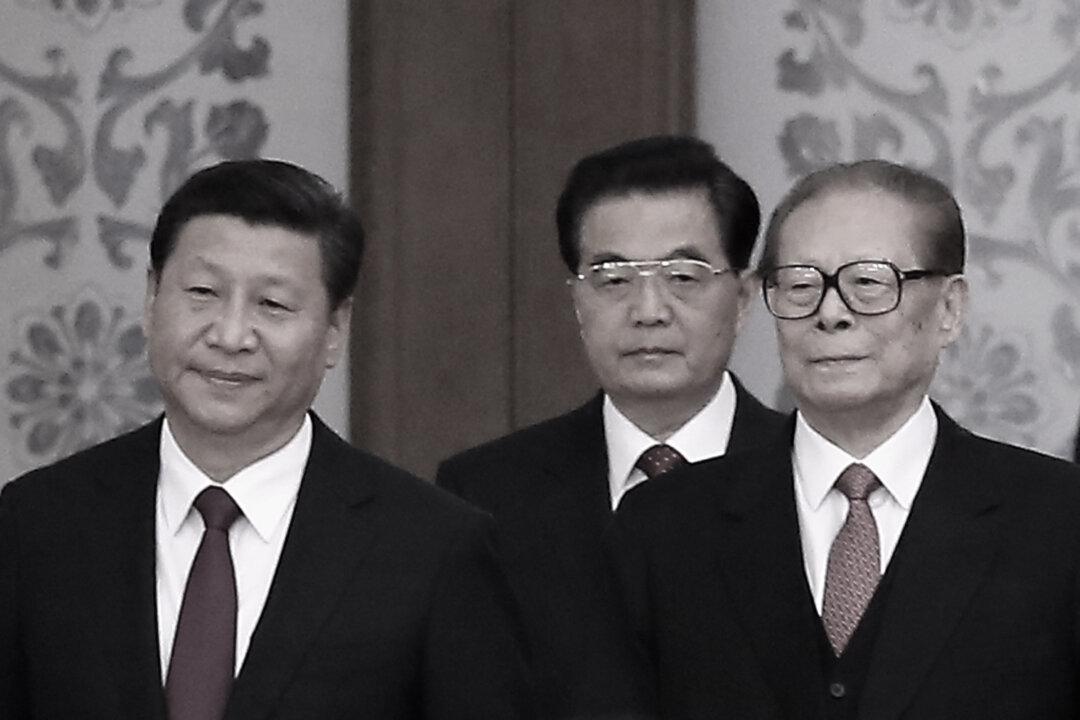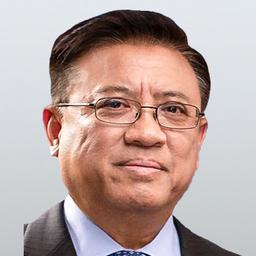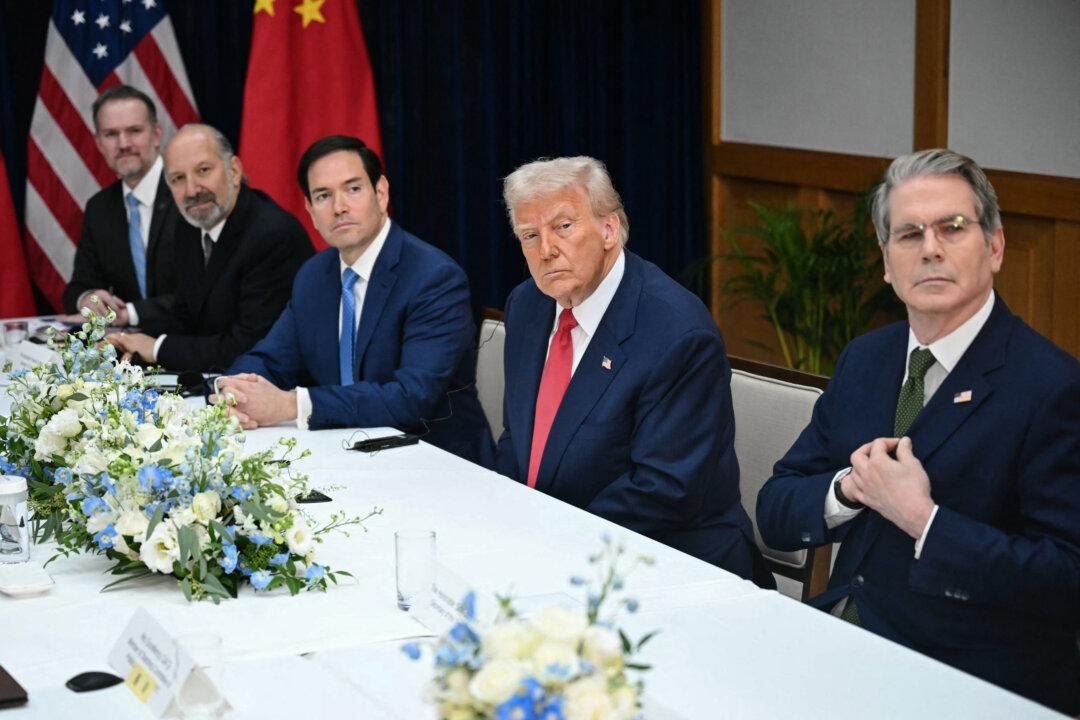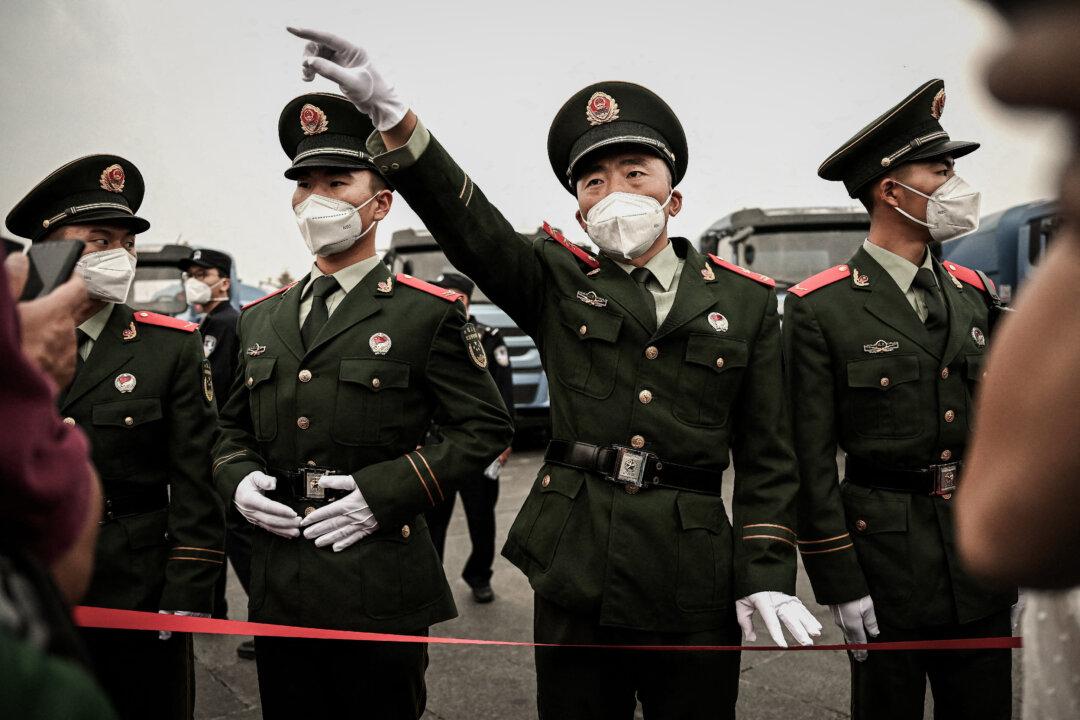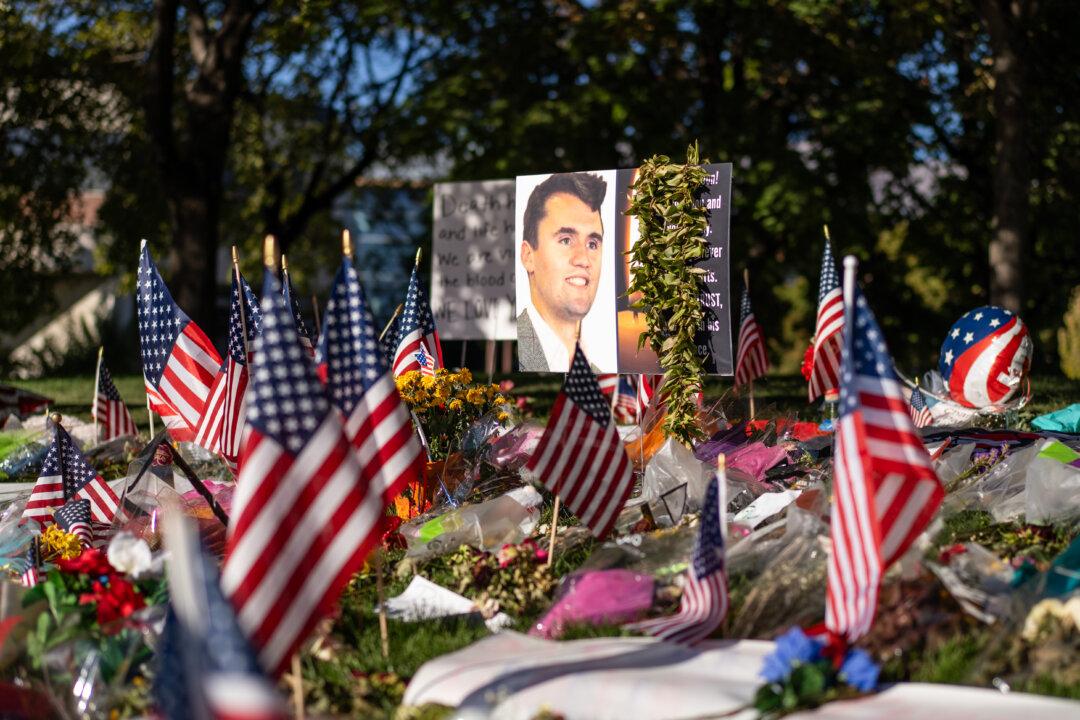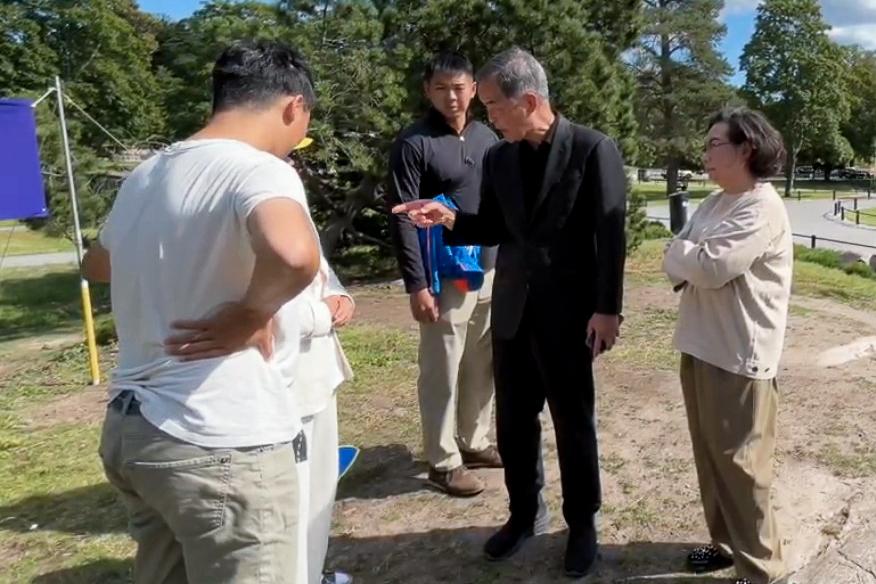The de-JiangZeminication of the Chinese regime took a big step last week when the indictment of former security czar Zhou Yongkang was announced by the Supreme People’s Court.
Zhou will be tried for bribery, abuse of power, and leaking state secrets. The indictment listed all of Zhou’s many titles from the time he was deputy general manager of China National Petroleum Corporation in 1988 to his retirement in 2012 from the top Party organ—the Politburo Standing Committee—and from heading the Political and Legal Affairs Committee, which previously governed nearly all legal and police matters in China.
The time during which Zhou is alleged to have engaged in criminal activity almost overlaps exactly with Jiang Zemin’s time of being in power in the Chinese Communist Party (CCP), either because he held the top office or informally manipulated things behind the scenes after his retirement.
